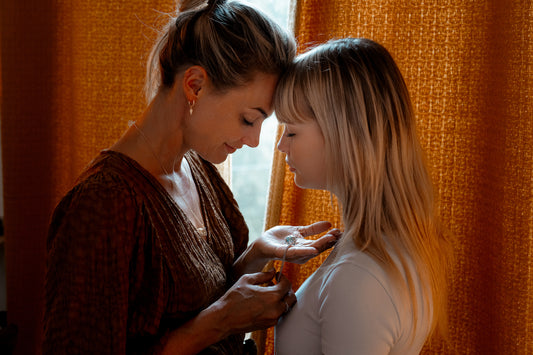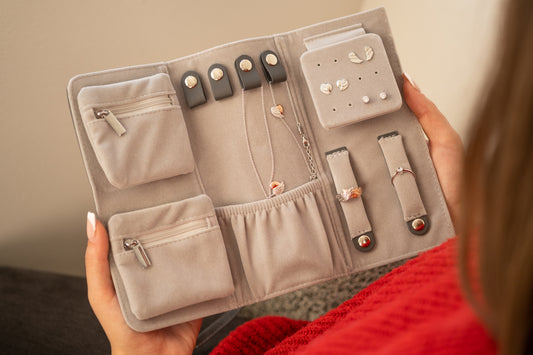Gemstones have been valued for centuries for their beauty and sparkle, but they are also said to have positive effects on our health. In this blog post, we will look at the effects of gemstones on the body and mind and find out which gemstones are recommended for various health aspects. Discover the fascinating world of gemstones and find out how they can support your health.
What are gemstones and how do they work?
Gemstones are mineral crystals that occur in nature. Each gemstone has a unique chemical composition and structure that gives it its distinctive properties. Gemstones are believed to emit energy in the form of vibrations or frequencies that can affect our body and mind.
The importance of gemstones for health
Gemstones have long been used in alternative medicine and energetic healing. They are said to provide various health benefits, from boosting the immune system to relieving stress and anxiety. Here are some gemstones and their associated effects:
Amethyst: Calming the mind, promoting calm and sleep.
Rose Quartz: Supporting the creation of harmony and love, promoting self-esteem.
Clear Quartz: Clarity of thought, increase in energy and vitality.
Citrine: Promoting creativity and prosperity, increasing self-confidence.
Jade: Detoxifying the body, promoting happiness and prosperity.
How do gemstones affect the body and mind?
There are various theories about how gemstones can affect the body and mind. One of the most popular theories is that gemstones have vibrations or frequencies that resonate with our body's energy centers, the chakras.
According to this theory, chakras are energy points in our body located along the spine and are associated with various aspects of our physical and mental well-being. Each chakra is associated with a specific color and gemstone that can support its activation and balancing.
By placing a gemstone near a specific chakra or placing it on the corresponding area of the body, it is believed to promote energy alignment and create harmonious balance. For example, an amethyst gemstone can be placed on the forehead chakra to promote mental clarity and intuition, while a rose quartz gemstone can be placed on the heart chakra to strengthen love and compassion.
In addition, it is also believed that gemstones can develop their effect through their colors and their specific meaning. Each color has its own vibrational frequency and can evoke different emotional and psychological responses. For example, the color green is associated with healing, harmony and balance, while blue is associated with calm, relaxation and communication. Corresponding gemstones such as green aventurine or blue sodalite can therefore have a corresponding effect on the body and mind.
It is important to note that the effects of gemstones on the body and mind have not yet been scientifically proven and individual experiences and feelings may vary. The use of gemstones should be viewed as a complementary method to promote overall well-being and not as a replacement for professional medical treatments or therapies for serious health problems.
Ultimately, it's best to have your own experience with gemstones and find out which gemstones and methods suit you best. If you are drawn to gemstones and notice positive effects, they can be a valuable addition to your health and wellness practices.
Tips for using gemstones
- Wear gemstones as jewelry such as pendants, bracelets or rings to feel their impact throughout the day.
- Place gemstones on specific areas of the body that need support. For example, a rose quartz stone can be placed on the heart chakra to promote love and compassion.
- Meditate with gemstones by holding them in your hands or placing them in front of you. Concentrate on the energy of the stone and let it unfold its effect.
Conclusion
Gemstones can be a wonderful addition to support body and mind health. Although their effects have not been fully scientifically proven, many people have had positive experiences with the use of gemstones. Try it out and discover how gemstones can improve your well-being. However, remember that they are not a substitute for medical treatments or therapies and a specialist should always be consulted in the event of serious health problems.



